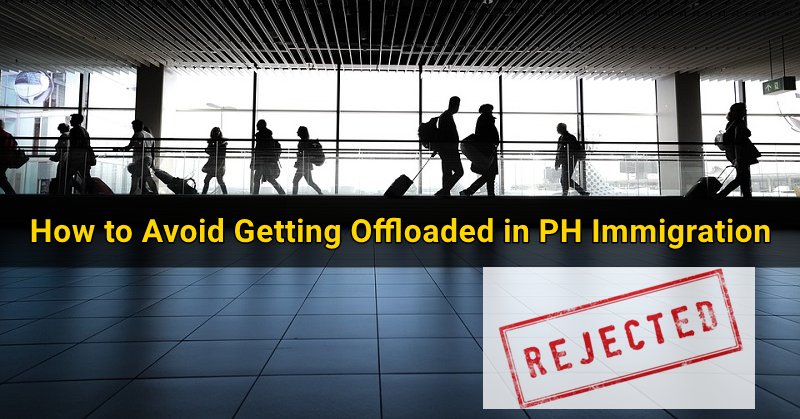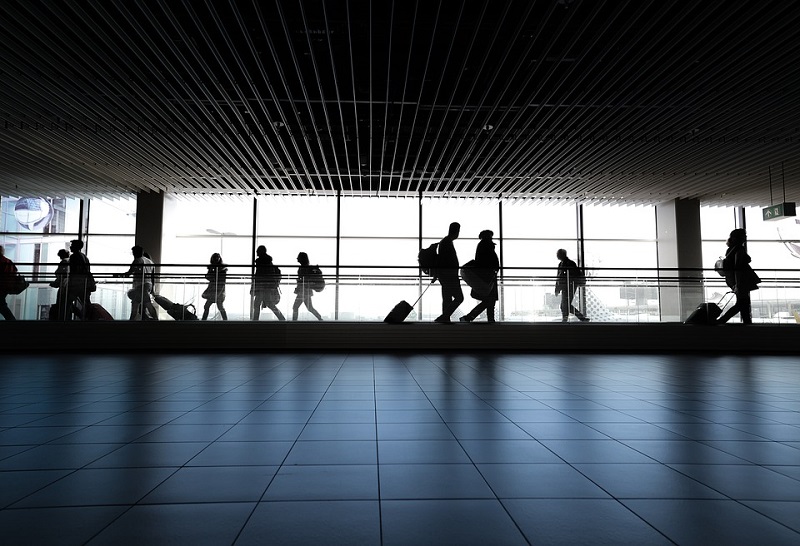If you are traveling abroad for the first time — whether to the UAE or any other country — keep in mind that you will have to face the immigration staff at the airport first. And so, you always have to be prepared to answer their questions and present your documents!
ALSO READ: Apply for UAE Visa in 40 Minutes from your Smartphone
Today, we’re going to discuss some tips to ensure that you go through immigration smoothly at NAIA international airport, Clark or Cebu Mactan International Airport, and all other airports in the Philippines. Otherwise, you run the risk of getting offloaded and unable to reach your destination!
Tips to Avoid Getting Offloaded at Philippine Immigration
Immigration staff at airports in the Philippines (or anywhere else, in general) tend to be strict. The reason is that there are cases where Filipinos travel outside as a tourist, but the actual purpose is to find jobs and this sometimes lead to illegal cases of human trafficking. In this topic, we remind travellers that it is always good to be prepared, especially if you’re traveling for the first time.
If an immigration officer finds your status or requirements inadequate, chances are you would get offloaded and unable to board your flight. To avoid this situation, we recommend the following tips…
#1 – Prepare the necessary documents.
Before your travel, see to it that you have:
-
- A passport valid for at least six months;
- An entry permit, work permit, or other visa based on your travel purpose;
- A round-trip ticket if you are on a visit visa or tourist visa;
- A valid national ID or government-issued ID for verification;
- A letter of invitation if someone sponsored your trip;
- An employment certificate if you have been hired by a company abroad; and
- Other documents that may be deemed necessary as part of your trip.
#2 – Prepare answers for common questions.
Here are some questions that immigration staff usually ask travelers:
-
- Is it your first time to travel abroad?
- Where is your destination?
- What is the purpose of your travel?
- How long will you stay there?
- Do you have an invitation letter?
- Do you have a travel itinerary?
- Do you have enough money for your trip?
- Will you return to the Philippines?
#3 – Answer briefly and concisely.
How you communicate matters as much as your answer itself. Remember that immigration officers often deal with long queues of passengers, so you must be prepared to answer them briefly and concisely. There is no need to provide long and elaborate answers!
#4 – Answer truthfully.
Of course, don’t forget to provide honest answers. When asked for the purpose of your travel, state your answer directly, and make sure that you have the corresponding visa needed.
#5 – Answer with confidence.
Speak with a loud, clear voice and express yourself with confidence. If you keep looking down on the floor, avoiding eye contact — you might come across as a suspicious character!
Facing a “Second Inspection”
An immigration officer might require you to undergo a “second inspection” if:
-
- You are a first-time traveler with no financial means or support;
- You are a minor traveling without a parent, guardian, or travel authorization from authorities (e.g. Department of Social Welfare & Development);
- You were found to have overstayed abroad during your last trip;
- You have an existing travel ban or absconding case abroad; or
- You were found to have been involved in an illegal activity.
During a “second inspection,” an immigration officer will ask further questions. If you haven’t done anything wrong, don’t worry! Simply relax and answer the questions truthfully, so that the officer will eventually approve of your travel!
ALSO READ: PH Bureau of Immigration to Implement Strict Monitoring of OFWs Bound for Dubai
As long as you have all the requirements, and you are prepared to answer any questions, then you shouldn’t worry about getting offloaded at the airport, even if you’re a first-time traveler. Meanwhile, if you are planning to work in Dubai, Abu Dhabi, or other emirates — check out these 10 things you should know before working in the UAE.


